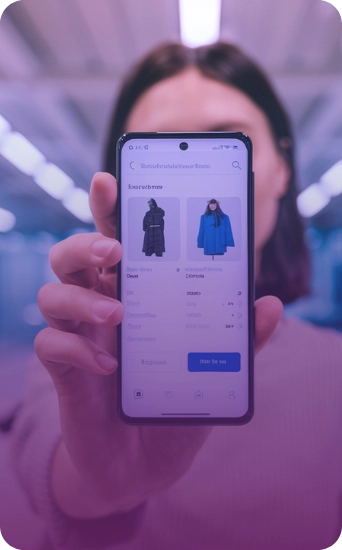In the digital world, one of the strategies that has become increasingly crucial to the success of any business is customer loyalty. Customer loyalty in e-commerce is essential for generating brand recognition, creating an ongoing relationship between companies and consumers and encouraging product repurchases.
Although loyalty is not a recent novelty, it has been consolidating itself as a trend in the market. It's a strategy that allows companies to offer a more efficient shopping experience, increase customer satisfaction and boost turnover. It's a differentiator because it uses the emotional connection with consumers to adapt its offers, gather feedback and use data to create experiences.
According to data released by McKinsey & Company in the 2022 "Winning in Loyalty" survey, loyalty programs show significant numbers: 64% of respondents are more likely to buy more often; 50% recommend the brand to others; 35% are more inclined to choose the brand over competitors; and 31% are even more willing to pay a higher price to continue enjoying the brand they like. For companies, loyalty is an effective alternative to brand awareness.
Omnichannel and customer loyalty
Loyalty is, above all, an omnichannel program. Through it, it is possible to integrate all sales channels (online and offline), allowing the customer experience to be completely integrated, fluid and consistent. This integration is essential for building customer loyalty.
With advances in artificial intelligence, this technology will enable even more precise personalization of each consumer's profile. With AI, it is already possible to develop specific strategies for important commercial dates, such as Black Friday. Personalization is another strong point because, as well as encouraging continuous data collection, it maintains a good relationship with customers, which boosts sales.
Loyalty and gamification
Another important aspect is gamification, which allows loyalty programs to be transformed in a dynamic and engaging way, increasing customer engagement. By incorporating elements such as levels, challenges, instant rewards and rankings, brands can encourage their customers to interact more frequently with their products and services. For example, a gamified loyalty program can offer points or badges for each purchase made, for visiting the website daily, for sharing content on social networks, among other interactions. These elements make the process of accumulating points more fun and motivating.
Benefits of loyalty for consumers
- Tangible rewards: customers get discounts, gifts and access to exclusive products, adding value to their purchases.
- Improved shopping experience: Benefits such as free shipping and priority service make shopping more convenient and satisfying.
- Personalization and relevance: customers receive personalized offers based on their preferences, increasing satisfaction.
- A sense of exclusivity: VIP or premium levels make the customer feel valued and more connected to the brand.
- Participation in brand communities: Gamified programs create a sense of belonging and strengthen the emotional bond with the brand.
Benefits of loyalty for companies
Loyalty is an effective strategy for e-commerce companies, offering benefits that go beyond simple customer loyalty. It contributes to increasing revenue, improving profit margins, giving brands a competitive advantage and creating a solid data base. According to McKinsey & Company, companies that want to implement loyalty programs should aim to:
- Segmentation: focus on key behaviors to increase value among high-potential customers.
- Engagement: go beyond transactions, offering exclusive experiences and attractive benefits.
- Customization: use advanced data to create personalized offers and journeys across all channels.
- Ecosystem: integrate resources and partnerships to offer a unique and comprehensive value proposition.
- Economy: maximize the perceived value in relation to the cost of loyalty programs and generate new revenue.
- Use of data: take advantage of loyalty data to accelerate business priorities, such as CRM and marketing.
In a market where competition is intense and customer retention is crucial for sustainable growth, well-structured loyalty programs offer a range of substantial benefits for companies. In Brazil, large companies in the beverage and food, beauty and health, fuel, supermarket and pharmacy segments already use loyalty programs with their customers and are an inspiration to the entire market. I'm sure you know, are curious about or take part in one. Companies that invest in these programs have a greater chance of achieving lasting success.










